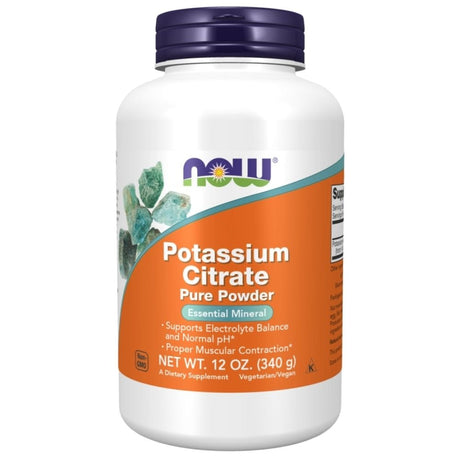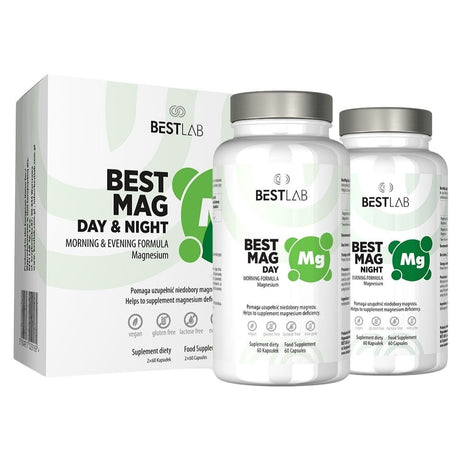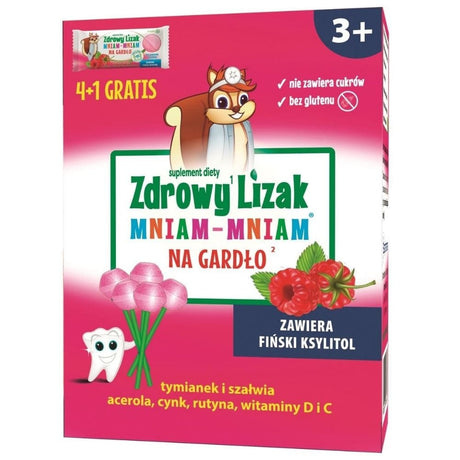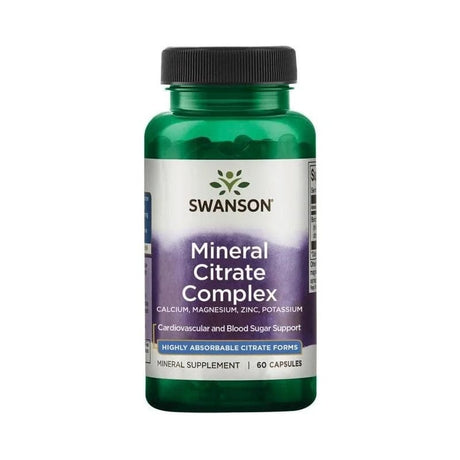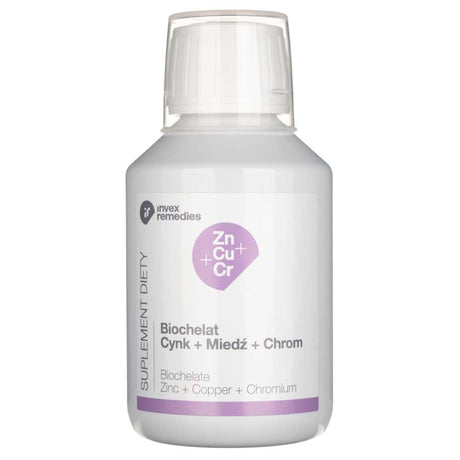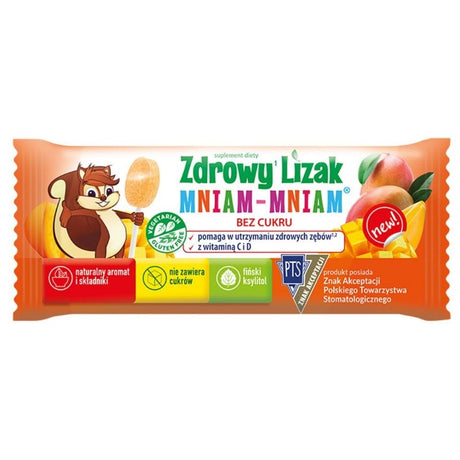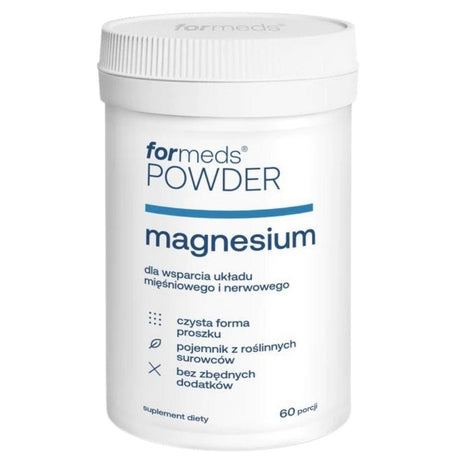Activlab
Activlab Pharma Elektrolyt-Energie mit Koffein, Kirsche - 20 Brausetabletten
Normaler Preis €1.99Grundpreis€0.10 / itemNicht verfügbarBiowen
Biowen Magnesiummalat 835 mg mit Vitamin B6 (P-5-P) - 100 Kapseln
Normaler Preis €12.59Grundpreis€0.13 / itemNicht verfügbarHealthy Origins
Healthy Origins Zinkbisglycinatchelat - 120 Kapseln
Normaler Preis €18.59Grundpreis€0.15 / itemNicht verfügbarNow Foods
Now Foods Kaliumcitratpulver - 340 g
Normaler Preis €12.69Grundpreis€37.32 / kgNicht verfügbarBestLab
BestLab Best Mag Day&Night - 2x60 Kapseln
Normaler Preis €33.69Grundpreis€0.28 / itemNicht verfügbarAura Herbals
Aura Herbals Magnesium + Vitamin B6 (P-5-P) - 60 Kapseln
Normaler Preis €7.69Grundpreis€0.13 / itemNicht verfügbarFormeds
Formeds Bicaps Kieselsäure - 60 Kapseln
Normaler Preis €13.69Grundpreis€0.23 / itemNicht verfügbarSwanson
Swanson Albion Zink 15 mg - 60 Kapseln
Normaler Preis €2.99Grundpreis€0.05 / itemNicht verfügbarAura Herbals
Aura Herbals Haare, Haut, Nägel - 60 Kapseln
Normaler Preis €10.19Grundpreis€0.17 / itemNicht verfügbarActivlab
Activlab Isoactive Isotonic mit Hibiskus, Multifrucht - 31,5 g
Normaler Preis €0.39Grundpreis€1.24 / 100gNicht verfügbarActivlab
Activlab Isoactive Isotonic mit Ashwagandha, Pfirsich-Eistee - 31,5 g
Normaler Preis €0.39Grundpreis€12.38 / kgNicht verfügbarStarpharma
Starpharma Healthy Lutscher Hals, Himbeere - 4+1 Gratis
Normaler Preis €2.39Grundpreis€0.48 / itemNicht verfügbarOlimp
Olimp Chela-Mag B6 Forte Shot, Kirschgeschmack - 9 Ampullen
Normaler Preis €13.49Grundpreis€1.50 / itemNicht verfügbarSwanson
Swanson Mineral Citrate Complex - 60 Kapseln
Normaler Preis €4.99Grundpreis€0.08 / itemNicht verfügbarPowerBar
PowerBar Electrolytes ohne Zucker, Mango-Maracuja - 10 Brausetabletten
Normaler Preis €4.99Grundpreis€0.50 / itemNicht verfügbarSolgar
Solgar Formel VM-75 - 120 pflanzliche Kapseln
Normaler Preis €31.29Grundpreis€0.26 / itemNicht verfügbarInvex Remedies
Invex Remedies Zink Kupfer Chrom Biochelat - 150 ml
Normaler Preis €11.39Grundpreis€7.59 / 100mlNicht verfügbarActivlab
Activlab Pharma Electrolytes Contraction, Rote Johannisbeere - 20 Brausetabletten
Normaler Preis €1.59Grundpreis€0.08 / itemNicht verfügbarBiowen
Biowen Potassium Forte, Kaliumcitrat 1100 mg - 100 Kapseln
Normaler Preis €9.19Grundpreis€0.09 / itemNicht verfügbarAliness
Aliness Calciumbutyrat 550 mg (natriumfrei) - 100 Tabletten
Normaler Preis €14.79Grundpreis€0.15 / itemNicht verfügbarStarpharma
Starpharma Ges&er Lutscher mit Vitamin C & D, Mango - 6 g
Normaler Preis €0.49Grundpreis€81.67 / kgNicht verfügbarFormeds
Formeds Pulver Magnesium - 55,8 g
Normaler Preis €6.09Grundpreis€10.91 / 100gNicht verfügbarProgress Labs
Progress Labs Calcium + Vitamin C - 120 Kapseln
Normaler Preis €6.59Grundpreis€0.05 / itemNicht verfügbarFormeds
Formeds Bicaps Calcium D3 - 60 Kapseln
Normaler Preis €8.69Grundpreis€0.14 / itemNicht verfügbar
Die Bedeutung von Mineralien für Ihre Gesundheit verstehen
Mineralien sind wichtige Bestandteile, die eine entscheidende Rolle bei der Aufrechterhaltung einer optimalen Körperfunktion spielen. Diese wesentlichen Elemente tragen zum Aufbau starker Knochen, zur Aufrechterhaltung des Säure-Basen-Gleichgewichts, und zur Bildung roter Blutkörperchen bei. Eine ausgewogene Ernährung kann zwar viele notwendige Mineralien liefern, doch kann eine Nahrungsergänzung von Vorteil sein, wenn die Aufnahme mit der Nahrung nicht ausreicht. Tauchen wir ein in die Welt der Mineralien, ihre Arten, und ihre Bedeutung für einen gesunden Körper.
Die wesentliche Rolle der Mineralien für die Körperfunktionen
Für eine langfristige Gesundheit, müssen alle Mineralien im Körper im Gleichgewicht sein. Ein Mineralienmangel kann zu ernsten Gesundheitsproblemen wie Anämie, Schilddrüsenproblemen, und Zahnschmelzverlust führen. Diese lebenswichtigen Elemente regulieren den Herzschlag, stärken Knochen und Zähne, und tragen zur Aufrechterhaltung gesunder Blutdruckwerte bei. Die Sicherstellung einer angemessenen Mineralstoffzufuhr ist der Schlüssel zur Förderung des allgemeinen Wohlbefindens und zur Vorbeugung verschiedener gesundheitlicher Probleme.
Verständnis der verschiedenen Mineralstoffarten
Mineralstoffe werden in zwei Hauptgruppen eingeteilt: Mikronährstoffe und Makronährstoffe. Diese Einteilung basiert auf dem täglichen Bedarf jedes Mineralstofftyps.
Mikronährstoffe: Kleine Mengen, Große Wirkung
Mikronährstoffe sind Mineralstoffe, die in kleinen Mengen, benötigt werden, normalerweise weniger als 100 mg pro Tag. Trotz ihres geringen Mengenbedarfs, sind diese Mineralstoffe für die ordnungsgemäße Funktion des Körpers entscheidend. Einige wichtige Mikronährstoffe sind:
- Zink : Wichtig für die Immunfunktion, Wundheilung, und Hautgesundheit
- Kupfer: Wichtig für die Herzgesundheit und den Sauerstofftransport
- Eisen: Wesentlich für die Bildung roter Blutkörperchen und die Sauerstoffzirkulation
Makronährstoffe: Die Grundlage der Mineraliengesundheit
Makronährstoffe werden in größeren Mengen benötigt, mehr als 100 mg pro Tag. Diese Mineralien bilden die Grundlage für viele Körperprozesse und sind ein wesentlicher Bestandteil der Zellstruktur. Zu den wichtigsten Makronährstoffen gehören:
- Kalzium : Entscheidend für die Gesundheit der Knochen und die Muskelfunktion
- Magnesium: Wichtig für die Energieproduktion und die Nervenfunktion
- Kalium: Unverzichtbar für die Gesundheit des Herzens und den Flüssigkeitshaushalt
Schlüsselmineralien für eine optimale Gesundheit
Alle Mineralien sind wichtig, aber einige sind über die Ernährung allein schwieriger zu erhalten. Hier sind einige wichtige Mineralien, die besondere Aufmerksamkeit verdienen:
Chrom: Der Blutzuckerausgleicher
Chrom ist ein Spurenelement, das eine entscheidende Rolle im Glukosestoffwechsel spielt. Es trägt zur Kontrolle des Blutzuckerspiegels bei, und kann das Diabetesrisiko verringern. Darüber hinaus kann, Chrom dazu beitragen, das schlechte Cholesterin zu senken und gleichzeitig das gute Cholesterin zu erhöhen, und bietet so Schutz vor Arteriosklerose.
Zink: Der Immun- und Hautversorger
Zink ist für die Erhaltung gesunder Haut, Haare, und Nägel unerlässlich. Es spielt auch eine wichtige Rolle bei der Wundheilung und der Immunfunktion. Ein Zinkmangel kann zu verlängerten Heilungszeiten und Hautproblemen führen. Dieser Mineralstoff trägt auch zur Festigkeit der Knochen, bei und ist daher bei Erkrankungen wie Rheuma von Vorteil.
Kupfer: Der Helfer des Kreislaufsystems
Kupfer ist entscheidend für die Aufrechterhaltung eines gesunden Kreislaufsystems und der Herzfunktion. Es unterstützt den Sauerstofftransport zu den Zellen und beeinflusst die Aktivität der Neurotransmitter, und kann so die Gehirnfunktion verbessern. Eine ausreichende Kupferzufuhr kann die allgemeine kardiovaskuläre und neurologische Gesundheit unterstützen.
Fazit: Umfassende Mineraliengesundheit
Die Rolle der Mineralien in Ihrem Körper zu verstehen, ist entscheidend für die Erhaltung einer optimalen Gesundheit. Eine ausgewogene Ernährung ist zwar die beste Quelle für Mineralien, aber, Nahrungsergänzungsmittel können helfen, Defizite auszugleichen und das allgemeine Wohlbefinden zu fördern. Bei Medpak, bieten wir eine breite Palette hochwertiger Mineralstoffpräparate an, die Sie bei der Deckung Ihres Nährstoffbedarfs unterstützen. Entdecken Sie unsere Kollektion und machen Sie einen Schritt zu mehr Gesundheit Toda y.



